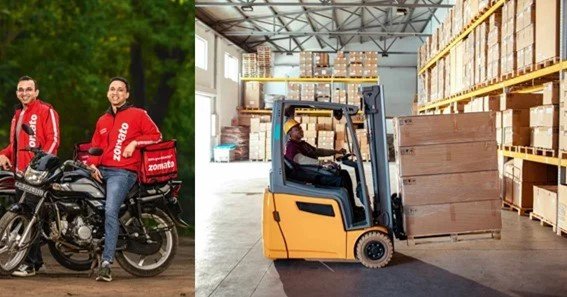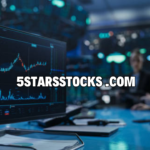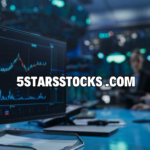Zomato Hyperpure, a B2B platform launched in 2018, has quickly become a significant player in the restaurant supply chain industry by offering a farm-to-fork model that ensures the delivery of high-quality, fresh ingredients to restaurants. However, it faces stiff competition from several established and emerging companies aiming to revolutionize the same space.
Zomato Hyperpure: A Market Leader?
Business Model and Market Penetration
Zomato Hyperpure’s success is largely attributed to its direct sourcing model, which bypasses traditional supply chain intermediaries to deliver fresh produce, dairy, meats, and more directly to restaurants. This model not only improves the quality and consistency of supplies but also enhances cost efficiency for its restaurant partners. Hyperpure has rapidly scaled, now serving over 30,000 restaurants across 10 cities in India, and has become a vital revenue stream for Zomato, contributing significantly to its overall earnings.
Hyperpure’s growth has been impressive, with its revenues doubling year-over-year. The platform has also expanded its offerings to include ready-to-eat products, further solidifying its position as a comprehensive solution for restaurants’ procurement needs. This expansion reflects Hyperpure’s ambition to dominate the B2B food supply chain space.
Key Competitors
1. Ninjacart
Ninjacart is one of the most prominent competitors to Zomato Hyperpure. Founded in 2015, Ninjacart has carved out a niche in the fresh produce supply chain, connecting farmers directly with retailers, restaurants, and service providers. With a strong focus on technology and logistics, Ninjacart operates on a similar farm-to-fork model but has the advantage of a broader network and deeper penetration in rural areas. The company’s robust infrastructure and scale give it an edge in terms of supply chain efficiency and cost management.
2. Udaan
Udaan is another major player in the B2B supply chain segment, catering not only to restaurants but also to retailers and small businesses. Unlike Hyperpure, which focuses exclusively on the HoReCa (Hotels, Restaurants, and Cafes) industry, Udaan’s diversified portfolio includes electronics, apparel, and pharmaceuticals, alongside food supplies. This broad market reach makes Udaan a formidable competitor, though it lacks the specialized focus on the food and restaurant sector that Hyperpure offers.
3. Amazon Business
Amazon’s entry into the B2B space with Amazon Business has brought significant competition to Hyperpure. Amazon leverages its vast logistics network and technology to provide an extensive range of products to businesses, including restaurants. While Amazon’s Business is not focused solely on the food supply chain, its sheer scale and operational efficiency make it a strong competitor in the segment.
4. Jumbotail
Jumbotail is a specialized B2B marketplace that focuses on serving the grocery and food service sectors. It offers a wide range of products and operates a logistics network that is optimized for last-mile delivery. Jumbotail’s focus on the grocery sector and its technology-driven approach make it a close competitor to Hyperpure, particularly in the small and medium-sized restaurant segment.
Who’s Leading the Revolution?
While Zomato Hyperpure is a leader in the HoReCa-specific supply chain, its competitors like Ninjacart and Udaan offer broader or more diversified services that appeal to different segments of the market. Hyperpure’s focused approach to quality and direct sourcing has positioned it strongly in the restaurant industry, especially within metropolitan areas. However, competitors like Ninjacart and Udaan leverage broader networks and diversified portfolios to capture larger segments of the B2B market, making the competition fierce.
Zomato Hyperpure is well-positioned to continue its growth and lead the restaurant supply chain revolution, particularly as it expands its service offerings and geographical reach. However, its competitors are equally innovative and aggressive, ensuring that the race to dominate the B2B food supply chain remains highly competitive.
FAQ
1. What is Zomato Hyperpure?
Zomato Hyperpure is a B2B platform launched by Zomato in 2018 that supplies high-quality, fresh ingredients directly to restaurants through a farm-to-fork model.
2. Who are the main competitors of Zomato Hyperpure?
The main competitors include Ninjacart, Udaan, Amazon Business, and Jumbotail, each with its strengths in the B2B supply chain space.
3. How does Hyperpure differentiate itself from its competitors?
Hyperpure focuses on the HoReCa segment, offering a direct sourcing model that improves supply chain efficiency and product quality, particularly for restaurants.
4. What are Hyperpure’s growth prospects?
Hyperpure is expected to continue growing rapidly, with plans to expand its reach to more cities and enhance its product offerings to include ready-to-eat items.
5. Can Hyperpure disrupt the supply chain industry?
Yes, with its focused approach on direct sourcing and technology-driven logistics, Hyperpure has the potential to disrupt the traditional restaurant supply chain model.
Disclaimer: This article is for informational purposes only and should not be taken as financial advice. Always consult a financial advisor for investment decisions.










